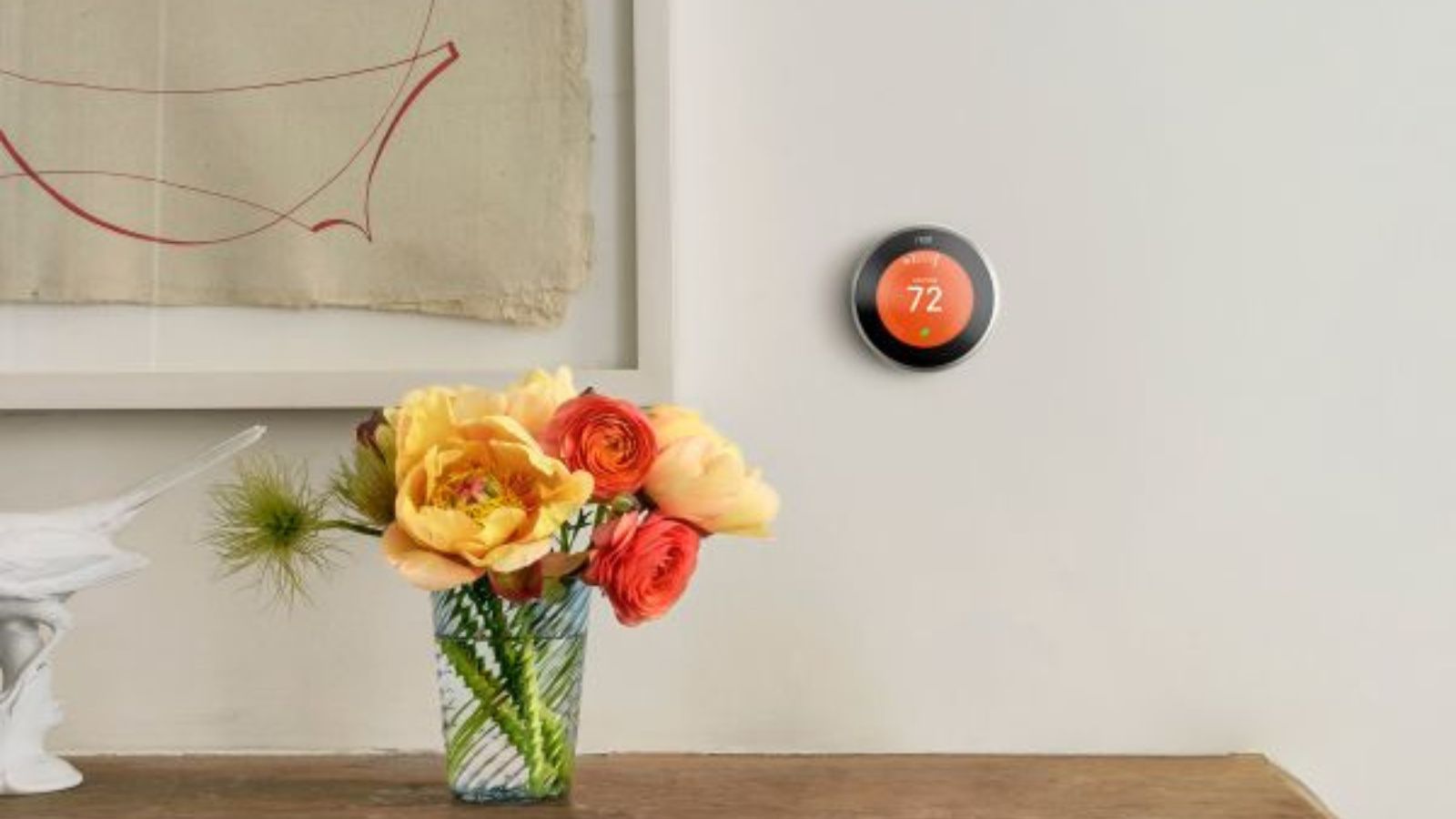What is a smart thermostat? And how one could save you money
Could you lower energy use and bills in one with a smart thermostat? This is what they are, what they do, and how they can save you money


Design expertise in your inbox – from inspiring decorating ideas and beautiful celebrity homes to practical gardening advice and shopping round-ups.
You are now subscribed
Your newsletter sign-up was successful
Want to add more newsletters?

Twice a week
Homes&Gardens
The ultimate interior design resource from the world's leading experts - discover inspiring decorating ideas, color scheming know-how, garden inspiration and shopping expertise.

Once a week
In The Loop from Next In Design
Members of the Next in Design Circle will receive In the Loop, our weekly email filled with trade news, names to know and spotlight moments. Together we’re building a brighter design future.

Twice a week
Cucina
Whether you’re passionate about hosting exquisite dinners, experimenting with culinary trends, or perfecting your kitchen's design with timeless elegance and innovative functionality, this newsletter is here to inspire
A smart thermostat replaces your traditional thermostat to allow you to control your heating and cooling systems via your phone, laptop or device, including smart assistants. For your smart thermostat to work as it's designed to, you need to have it connected to the internet; you also need to be able to access it via your smart phone while you're out and about to set schedules, control the on/off function and temperature, too.
A smart thermostat might be just one of the eco home improvements you are making to be more energy-efficient and, of course, to cut energy bills. 'Having a system that can learn your habits and adjust times to minimize energy use requires very little input from you once the system has been set up,' say the experts at Energy Saving Trust. 'Whether smart heating controls will save you money will depend on your lifestyle and how you currently control your heating. Studies suggest that while they can save money, it may take some time to pay for their upfront cost as they can be quite expensive.'
So what exactly do they do and are they worth the investment? More importantly, can a smart thermostat really save you money?
What is the point of a smart thermostat?
According to Energy Star, the government-backed symbol for energy efficiency, 'a smart thermostat is a Wi-Fi enabled device that automatically adjusts heating and cooling temperature settings in your home for optimal performance.'
Smart thermostats do vary, though those that have the Energy Star label are guaranteed to have been independently certified to deliver energy savings.
If you are interested in any element of eco heating, you will probably already know that, as well as allowing you to adjust your heating and hot water remotely, whether from the office, the backyard or from vacation, certified smart thermostats are designed, according to the experts at Energy Star, to:
- 'Learn your temperature preferences and establish a schedule that automatically adjusts to energy-saving temperatures when you are asleep or away.'
- 'Know when you’re on the way home and automatically adjusts your home’s temperature to your liking.'
- 'Enter a low-power standby mode when inactive.'
- Eco or home/away functions automatically adjust the temperature up or down depending on the conditions outside.
Get to know your smart thermostat app well and it will help you to understand where you use and need heat within your home, and where you don't.
Design expertise in your inbox – from inspiring decorating ideas and beautiful celebrity homes to practical gardening advice and shopping round-ups.
Can a smart thermostat save me money?
Smart thermostats, used properly, can, according to Just Energy, save you almost $200 a year. However, the words 'used properly' is key here. Smart thermostats won't necessarily save you money, but you are much more likely to if:
- Your daily routine is a little unpredictable; a smart thermostat will allow you to delay your heating coming on, for example, if you are held up at work. If, however, your routine is pretty fixed, a traditional thermostat should be just as effective.
- You don't have time or head-space to religiously adjust your home's thermostat each time you leave home, whether for a short time or to go off on vacation. With a smart thermostat, you can do so remotely.
How much do smart thermostats cost?
Smart thermostats cost between just under $100 and $500, with lower-cost thermostats lacking some of the fancier features the higher cost ones have. You can buy smart thermostats on Amazon, but we would always advise ensuring the one you buy is Energy Star-certified. Check, too, whether your state or city or even energy provider offer rebates or discounts for homeowners installing smart thermostats. Remember, too, that the costs don't stop there: you will undoubtedly need to pay for installation, too, which will cost you another $100 upwards.
Is it worth getting a smart thermostat?
If you are in and out of your home regularly, if you have an unpredictable routine or if you simply have poor habits in controlling your heating and cooling despite a predictable, at-home routine – which many of us do – a smart thermostat can make you much more conscious of the energy you are using, and help reduce your overall usage. So, yes, they are worth buying in these circumstances.

Lucy Searle has written about interiors, property and gardens since 1990, working her way around the interiors departments of women's magazines before switching to interiors-only titles in the mid-nineties. She was Associate Editor on Ideal Home, and Launch Editor of 4Homes magazine, before moving into digital in 2007, launching Channel 4's flagship website, Channel4.com/4homes. In 2018, Lucy took on the role of Global Editor in Chief for Realhomes.com, taking the site from a small magazine add-on to a global success. She was asked to repeat that success at Homes & Gardens, where she also took on the editorship of the magazine. Today, Lucy works as Content Director across Homes & Gardens, Woman & Home, Ideal Home and Real Homes.